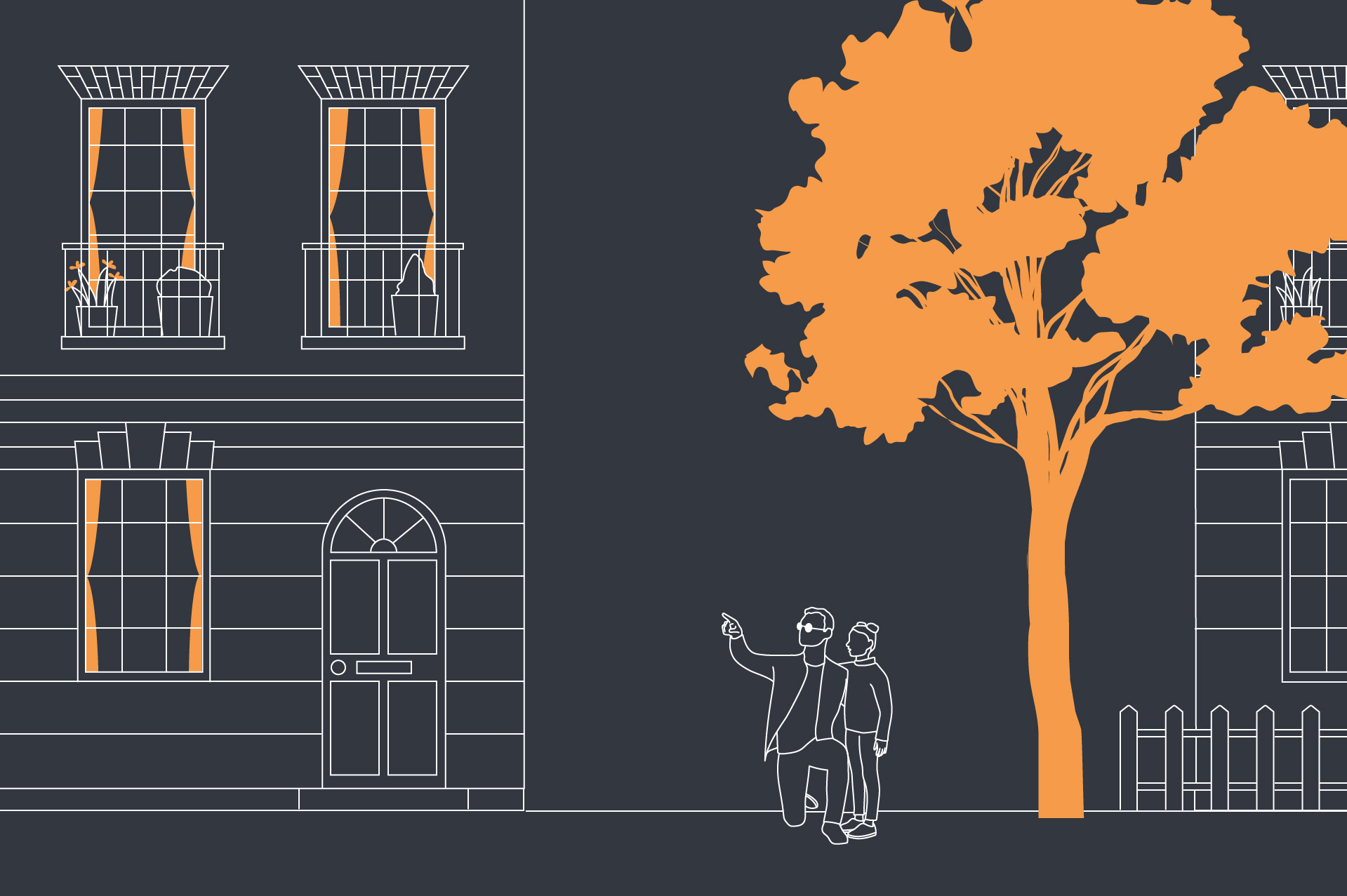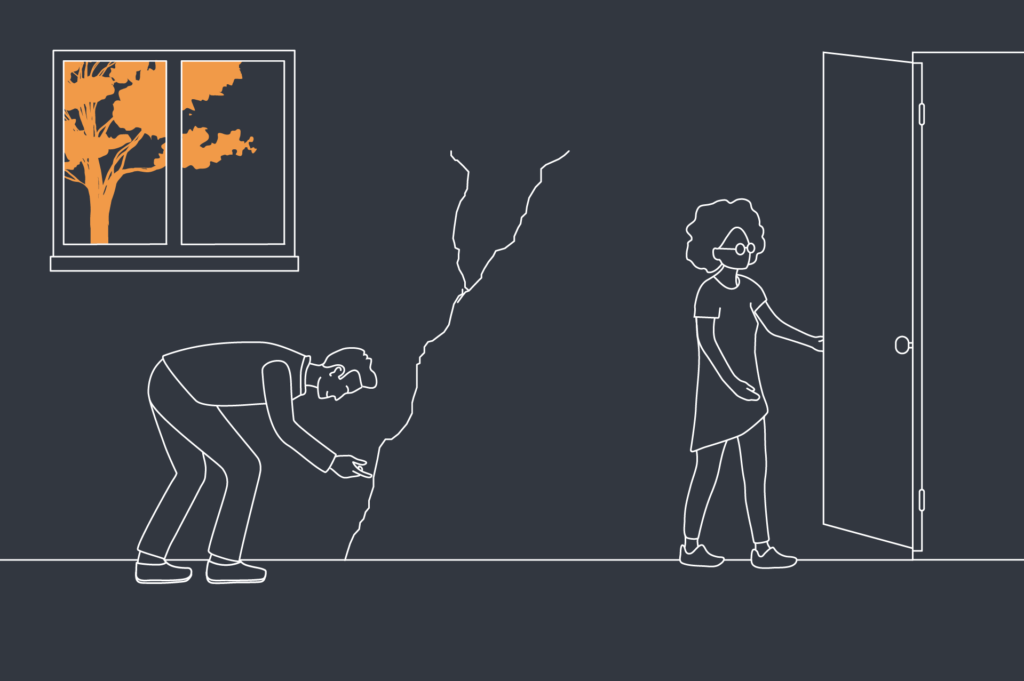‘Tax doesn’t have to be taxing’ they would purr at the end of those smug-faced Inland Revenue adverts. Sure thing, Moira. But as anyone who’s ever had to pay one single tax in the history of their life knows – we all know it bloody well is actually. What’s even more taxing is dealing with property tax. More specifically, transferring ownership of said property. Add the small detail of children and you’ve got yourself a full house of headaches, as it were.
Each and every one of the taxing minions wants to get their grubby little paws all over your properties and that’s just one more bugbear for the books. So, Moira, instead of randomly perching on the edge of someone’s office desk and raising your eyebrows about tax returns being as easy as pie, we’re here to explain how to successfully navigate property ownership transfers. While making sure you get some sweet, sweet tax relief in the process.

Make like Trump and body swerve the taxman
Move over Donald, we know all about your loop jumping and not-so-secret tax evasion cemetery-come-golf course plans. We’re here to help. Except we know how to mitigate tax rates whilst not breaking the law. By taking the appropriate (legal) steps and planning for your future wisely, you can help alleviate the sting of Capital Gains Tax (CGT) and Inheritance Tax (iHT) for your family too. Let’s take a closer look at what the heck CGT and IHT are when they’re at home…
Don’t get your HRT and CGT mixed up
That really would be a headache, wouldn’t it Alan. Basically, for a standard rate taxpayer the Capital Gains Tax (CGT) on a residential property is 18% as of the 2020/2021 tax year. It’s 28% for a higher rate taxpayer, which is for any gain made over £12,300 for individuals and £6,150 for trustees of settlements. Then Inheritance Tax (IhT) rears its little head, rather unsurprisingly, when you die. A tax of 40% will be liable on all assets valued at more than the £325,000 IHT threshold for single adults or £650,000 for married couples and civil partners. Onto your CGT and IHT relief options then.
So you’re looking to give me a house?
Thank you, Keith! Oh not me, you mean you want to transfer property to your child. My bad. Well, should you decide to gift a whole house to your child, you might want to make sure you’ve got a minimum of seven years before you pop your clogs in order to avoid paying both CGT and IHT. To ease your child’s hefty IHT bill later, CGT must be paid on the difference between the price when you bought the property and the market value when you gleefully gifted it to your lucky, lucky offspring.

No strings property pressie
Seven years after generously offloading your property, if you’re still whistling down the street and ordering lattes in the realm of the living, the asset will be removed from your estate and no IHT will be due. This is called a “potentially exempt transfer”. However, for this to work effectively, you must have willingly offered up the house with a big blue bow on top and shouted ‘no strings attached’ while watching them snatch the keys out of your warm, yet trembling hands. Otherwise it is considered a “gift with reservation of benefit” and will remain in your estate.
Let’s go halfsies?
If you fancied, you can always rent the property from your children if you needed to live there, as long as it’s at the market rental rate. No cheeky £100 pcm rentals for you my friend. Bear in mind however, that they will probably have to pay income tax on the rent they receive from you. Another nifty idea to minimise that pesky IHT is to give your child half the house and split the bills down the middle. That way, their half of the house would not be subject to IHT and you get to live in the good half with the kitchen and the pool table. Again, just make sure you last another seven years after going Dutch.

Trust in me…
Ready for another neat trick? If you transfer property into a trust, you can manage the abode until your child turns 18 and reduce your income tax in the process. You will also be able tor reduce the asset value for IHT reasons, all while providing an income for your children when they become adults. Win, win, win. The property does need to be mortgage-free however and the IHT applies to properties valued over £325,000 – so be aware that the most ideal house would be valued below the IHT threshold. But wait! There is another way to (legally) dodge the taxman…
Giving shares in a limited company
This is a tricky one, so hold onto your pencils. Christ, not that pencil Charles! As exciting as this is, we’re now just addressing the buy-to-let landlords in the room. To avoid IHT completely, you savvy little buy-to-letters may wish to consider passing on shares in your business rather than the properties you own. Business Property Relief, as it’s called, can remove IHT from a business by 50% or 100%. Be sure to move the company into areas eligible for this tax relief, so that you should be able to gift shares that will not be IHT liable. We didn’t say it was an easy manoeuvre. But hey – it’s not exactly burying your ex wife on your golf course in the name of tax evasion is it Donald? Ahem.

Seek help!
Whilst looking at the most mutually beneficial and safest options for transferring property ownership you might get yourself all in a tizzy, understandably. There are many ideas to consider and loopholes to meander. While the calculations are akin to a blackboard in a Matt Damon film. We can give our two pennies worth, but we can’t give you legal or financial advice. Always get professional advice from a property tax specialist or your accountant. We can suggest fantastic financial advisors who specialise in these areas but remember this is always your choice.
Contact us:
alex@daviesdavies.co.uk – Lettings Director (contact for lettings and property management)
mark@daviesdavies.co.uk – Sales Director (contact for sales, new homes and chartered surveying)
Davies & Davies Estate Agents, 85 Stroud Green Road, London, N4 3EG
Article & images by Barefaced Studios
You might also want to read other useful blog articles by clicking here.

The Renters’ Rights Bill is expected to become law after Easter 2025, bringing major changes to the private rented sector. Section 21 evictions will be abolished, and a single system of periodic tenancies will be introduced. This is the most significant shake-up for landlords and tenants since the Housing Act 1988.
While there will be challenges, there are also opportunities to adapt and thrive. In this blog, we break down everything you need to know, with any recent updates to be added.

Buying your first home is an exciting milestone, but amidst the excitement, it’s essential to keep a sharp eye out for potential issues. A well-staged property might look picture-perfect, but it’s what’s lurking beneath the surface that really matters. From the condition of the boiler to the strength of the water pressure, here’s Davies and Davies’ essential guide to making sure your dream home doesn’t come with any unexpected nightmares.
Read More...
Owning a home is like having a never-ending to-do list-there’s always something that needs fixing, painting, or decluttering. But when the sun is shining, and the days stretch longer, tackling those home maintenance tasks can actually feel (dare we say it?) enjoyable. So, slap on some sunscreen, grab a cold drink, and let’s dive into the ultimate summer home maintenance checklist to keep your property in top shape.
Read More...Get in Touch
Opening Times
Mon – Thurs: 0900 – 1815
Fri: 0900 – 1800
Sat: 1000 – 1600
Sun: Appointments by request